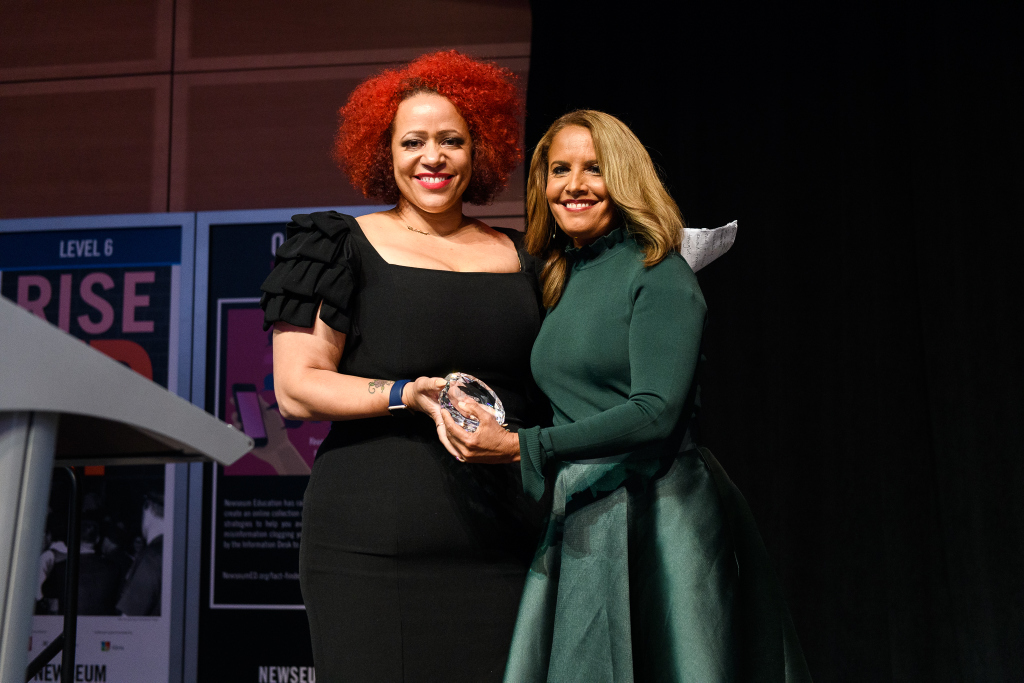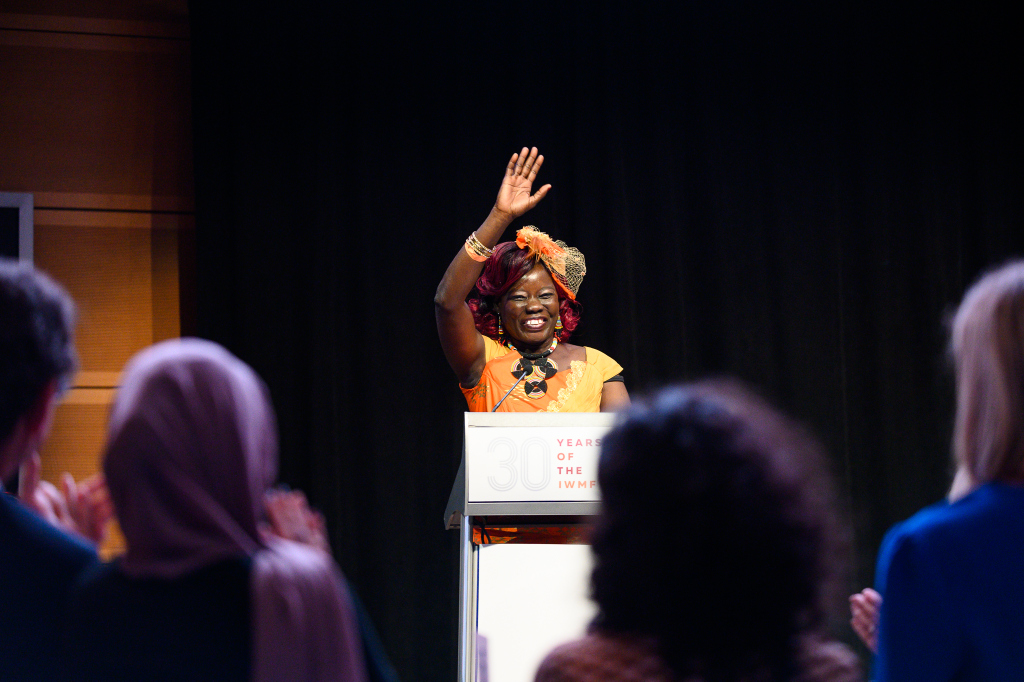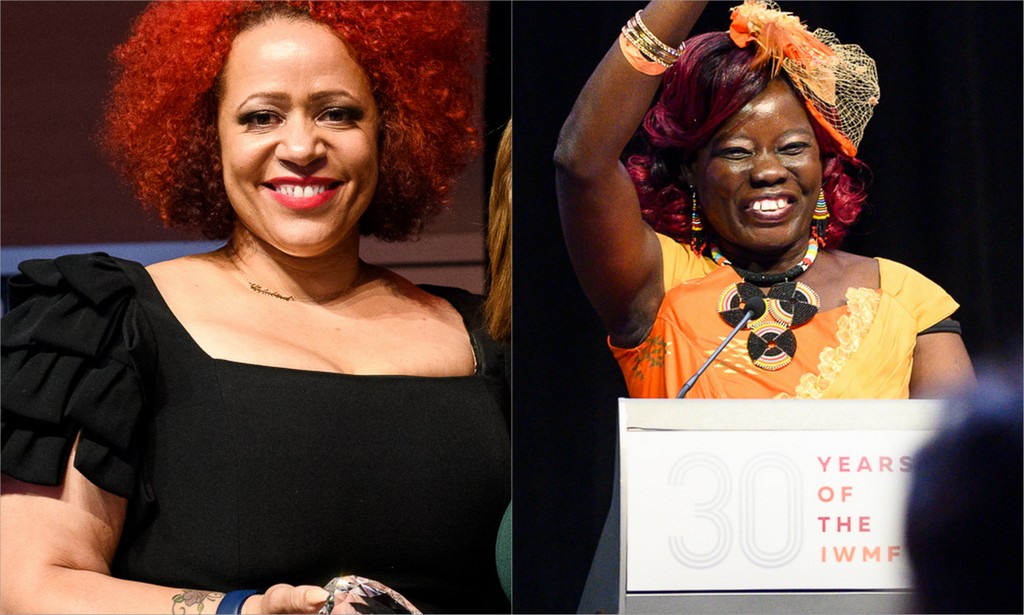[ad_1]
By Lenore T. Adkins, Special to the AFRO
The International Women’s Media Foundation, which supports female journalists around the world, honored two fearless, Black women making a name for themselves with their groundbreaking, powerful journalism.
Nikole Hannah-Jones, an investigative reporter at The New York Times Magazine, won the foundation’s Gwen Ifill Award for spearheading the magazine’s 1619 Project that explored the legacy of slavery in the United States, and for launching the Ida B. Wells Society For Investigative Reporting, which grooms reporters and editors of color for investigative journalism jobs.

“I’m living out my own motto, which is to try to be the person I needed when I was trying to make it myself,” Hannah-Jones said. “And it’s in that spirit that I helped cofound the Ida B. Wells Society and understanding there are so many people that have the talent to do this, but the door’s not open to us and our job is to open those doors.”
Anna Nimiriano, founder and editor-in-chief of the Juba Monitor, an independent, English language daily newspaper in South Sudan, received one of the organization’s Courage in Journalism Awards.

Despite its constitution touting press freedom, South Sudan is one of the most dangerous places in the world for journalists, according to Public Radio International.
As South Sudan’s lone female editor-in-chief, Nimiriano has been arrested, detained, yanked out of vehicles by police, physically assaulted and threatened by the government as she runs a newspaper that reports on the nascent country’s turmoil. Its ongoing civil war started after a political power struggle in 2013, and has killed nearly 400,000 people, displaced more than 4 million people and caused widespread famine.
The South Sudanese government attempts to censor and silence its critics. Between 2014 and 2017, at least 10 journalists were killed there, according to Reporters Without Borders.
Nimiriano fights intense government pressure to censor and at one point, she struggled to publish the newspaper when oil prices soared. The newspaper she helms is one of just three independent publications remaining in South Sudan.
Despite the dangers she faces, Nimiriano hopes to one day start radio and television news stations and refuses to be quiet.
“Sometimes I have to report, to say it out to the government and I have to write and put it in the newspaper what has happened to me,” Nimiriano told the AFRO. “If it happens that I have a meeting with the government, I’m saying it out, what that means to me, and even to journalists in South Sudan.”
The Gwen Ifill award memorializes the legendary journalist who served as co-anchor of PBS NewsHour and died three years ago.
Hannah-Jones says she never had the fortune of meeting Ifill, but the veteran newswoman always loomed large in her imagination and reporting.
“I don’t ever remember a time when she wasn’t in the world doing amazing journalism and as a young Black girl who wanted to do journalism and saw very, very few examples of that, she was the one person who looked like me and came from my community who was doing something that I wanted to do,” Hannah-Jones told the AFRO. “So it’s very surreal, both that she’s not with us anymore, and also that I’m receiving an award named in her honor. I can only hope that I live up to the standards and the dignity and grace in which she did her craft.”
In her acceptance speech, Hannah-Jones paid homage to some of the other pioneering Black women journalists who paved the way for her, including Ida B. Wells, Mary Ann Shadd Carey, Alice Dunnigan as well as contemporaries Michelle Norris and Nancy Hicks Maynard.
In addition, she paid homage to the recently departed Toni Morrison, who showed Hannah-Jones you she can center Black people in her writing.
“I stand at the border, I stood at the edge and claimed it as central. I claimed it as central and I left the rest of the world moved to where I was,” Hannah-Jones said, quoting Morrison. “And that’s what I try to do with my work every day.”
Nimiriano and Hannah-Jones were among several women the 30-year-old foundation honored last week at the Newseum during its annual Courage in Journalism Awards, which recognize female journalists showing uncommon bravery while reporting on international issues.
Other honorees included Liz Sly, The Washington Post Beirut bureau chief, as well as Anna Babinets and Nastya Stanko, two Ukraine journalists exposing government corruption there.
“We believe that democracy suffers without women in the newsroom,” said CNN’s Suzanne Malveaux, vice chair of the foundation’s board of directors. “And [when] media outlets fail to represent the diversity of our communities, they lose touch with the audience and the audience loses trust in journalism.”
[ad_2]
Source link

